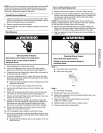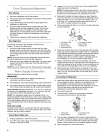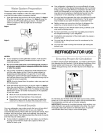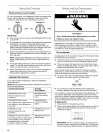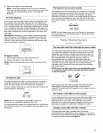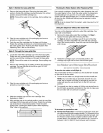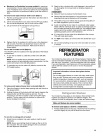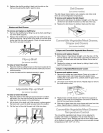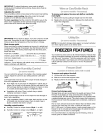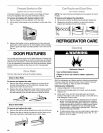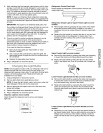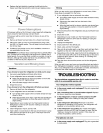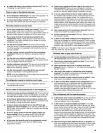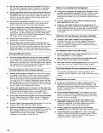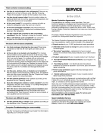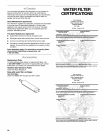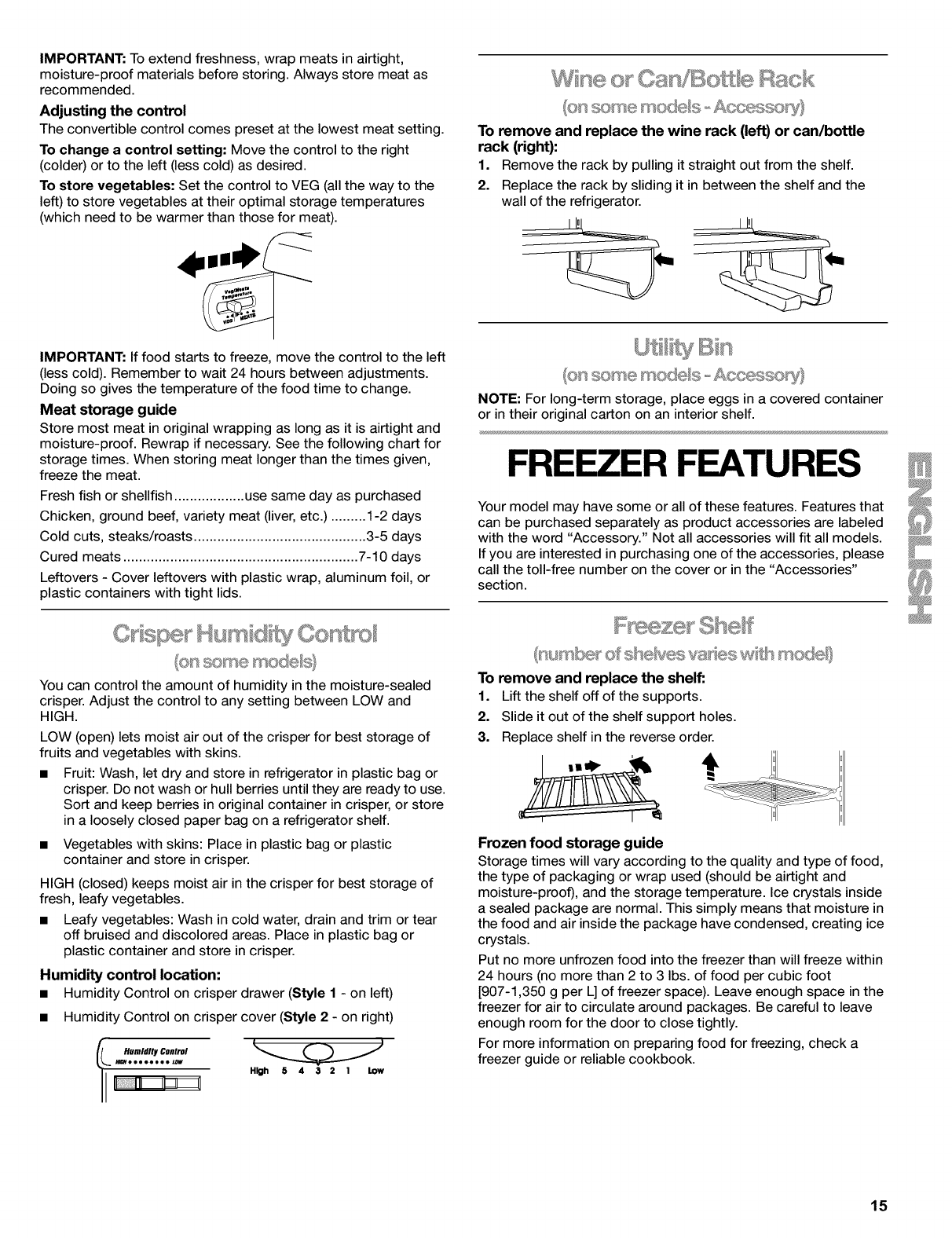
IMPORTANT: To extend freshness, wrap meats in airtight,
moisture-proof materials before storing. Always store meat as
recommended.
Adjusting the control
The convertible control comes preset at the lowest meat setting.
To change a control setting: Move the control to the right
(colder) or to the left (less cold) as desired.
To store vegetables: Set the control to VEG (all the way to the
left) to store vegetables at their optimal storage temperatures
(which need to be warmer than those for meat).
IMPORTANT: If food starts to freeze, move the control to the left
(less cold). Remember to wait 24 hours between adjustments.
Doing so gives the temperature of the food time to change.
Meat storage guide
Store most meat in original wrapping as long as it is airtight and
moisture-proof. Rewrap if necessary. See the following chart for
storage times. When storing meat longer than the times given,
freeze the meat.
Fresh fish or shellfish .................. use same day as purchased
Chicken, ground beef, variety meat (liver, etc.) ......... 1-2 days
Cold cuts, steaks/roasts ............................................ 3-5 days
Cured meats ............................................................ 7-10 days
Leftovers - Cover leftovers with plastic wrap, aluminum foil, or
plastic containers with tight lids.
You can control the amount of humidity in the moisture-sealed
crisper. Adjust the control to any setting between LOW and
HIGH.
LOW (open) lets moist air out of the crisper for best storage of
fruits and vegetables with skins.
• Fruit: Wash, let dry and store in refrigerator in plastic bag or
crisper. Do not wash or hull berries until they are ready to use.
Sort and keep berries in original container in crisper, or store
in a loosely closed paper bag on a refrigerator shelf.
• Vegetables with skins: Place in plastic bag or plastic
container and store in crisper.
HIGH (closed) keeps moist air in the crisper for best storage of
fresh, leafy vegetables.
• Leafy vegetables: Wash in cold water, drain and trim or tear
off bruised and discolored areas. Place in plastic bag or
plastic container and store in crisper.
Humidity control location:
• Humidity Control on crisper drawer (Style 1 - on left)
• Humidity Control on crisper cover (Style 2 - on right)
I High 5 4 3 2 1 Low
©an!B®/;£/e
To remove and replace the wine rack (left) or can/bottle
rack (right):
1. Remove the rack by pulling it straight out from the shelf.
2. Replace the rack by sliding it inbetween the shelf and the
wall of the refrigerator.
NOTi:: For long-term storage, place eggs in a covered container
or in their original carton on an interior shelf.
Your model may have some or all of these features. Features that
can be purchased separately as product accessories are labeled
with the word "Accessory." Not all accessories will fit all models.
Ifyou are interested in purchasing one of the accessories, please
call the toll-free number on the cover or in the "Accessories"
section.
sS seze - '
(_'_umbe_ (s_s/selves va_qes wi_:s m©de_}
To remove and replace the shelf:
1. Liftthe shelf off of the supports.
2. Slide it out of the shelf support holes.
3. Replace shelf in the reverse order.
Frozen food storage guide
Storage times will vary according to the quality and type of food,
the type of packaging or wrap used (should be airtight and
moisture-proof), and the storage temperature. Ice crystals inside
a sealed package are normal. This simply means that moisture in
the food and air inside the package have condensed, creating ice
crystals.
Put no more unfrozen food into the freezer than will freeze within
24 hours (no more than 2 to 3 Ibs. of food per cubic foot
[907-1,350 g per L] of freezer space). Leave enough space in the
freezer for air to circulate around packages. Be careful to leave
enough room for the door to close tightly.
For more information on preparing food for freezing, check a
freezer guide or reliable cookbook.
15



